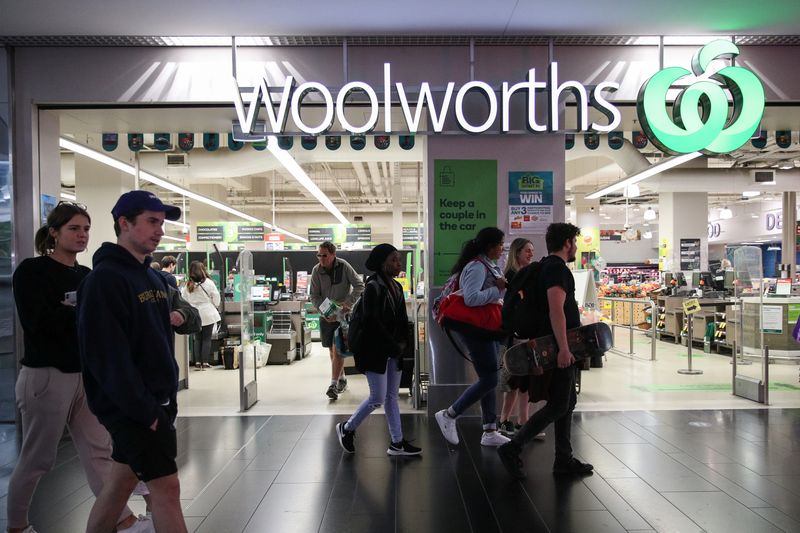By Byron Kaye and Harshita Swaminathan
(Reuters) -Top Australian grocer Woolworths Group Ltd said heavy rain may keep squeezing supply of farm-based staples, including potato chips, as soaring shelf prices contributed to a decline in first-quarter food sales, sending is shares skidding lower.
The trading update on Thursday underscores the impact of a third La Nina weather pattern in three years which has fuelled inflation at Woolworths and smaller rival Coles Group (OTC:CLEGF) Ltd, seen as economy bellweathers since they ring up two-thirds of Australian grocery sales.
It also shows Woolworths' grocery dominance being challenged: its September quarter sales showed higher inflation than at Coles, which reported results on Oct. 26, while Woolworths food sales went backwards compared to higher supermarket sales at Coles.
"It is a moving and quite dynamic situation," Woolworths CEO Brad Banducci said on a call with journalists, asked about floods which have damaged crops and caused the evacuation of thousands of people on Australia's east coast through 2022.
Recent flooding in the cooler-climate island state of Tasmania had resulted in a "very poor growing season" for potatoes which was "causing some challenges in the frozen category", Banducci added.
"It is also flowing through to some risks, I don't want to overplay anything at this stage, in potato crisps."
Australian food sales, the main earner for Woolworths, fell 1.1% in the three months to end-September, compared to a year earlier, the company said in an update that did not include profit. That compared to a 2.1% increase in supermarket sales at Coles.
In the same period, Australian food prices for Woolworths rose 7.3%, compared to 7.1% at Coles.
Shares of Woolworths were down 4.2% in morning trading, against a 2.3% decline in the broader market as investors fretted over another hefty U.S. rate hike. But Coles outperformed both, shedding just 1.4%.
Woolworths food sales were below consensus forecasts and Coles "appears to have closed the sales gap somewhat", Jefferies analysts said in a research note.
Australian food sales "did not improve ... despite rising inflation", UBS analysts noted.

Including all divisions such as discount department store and its business-to-business unit, group sales rose 1.8% to A$16.4 billion, Woolworths said, roughly in line with analyst forecasts.
($1 = 1.5746 Australian dollars)